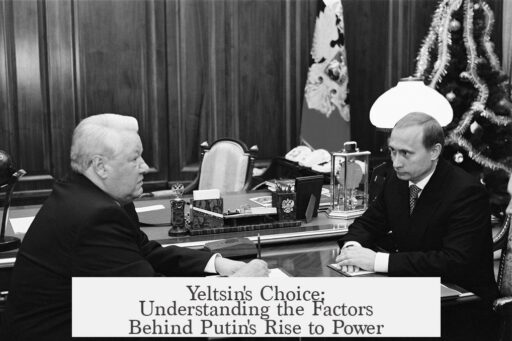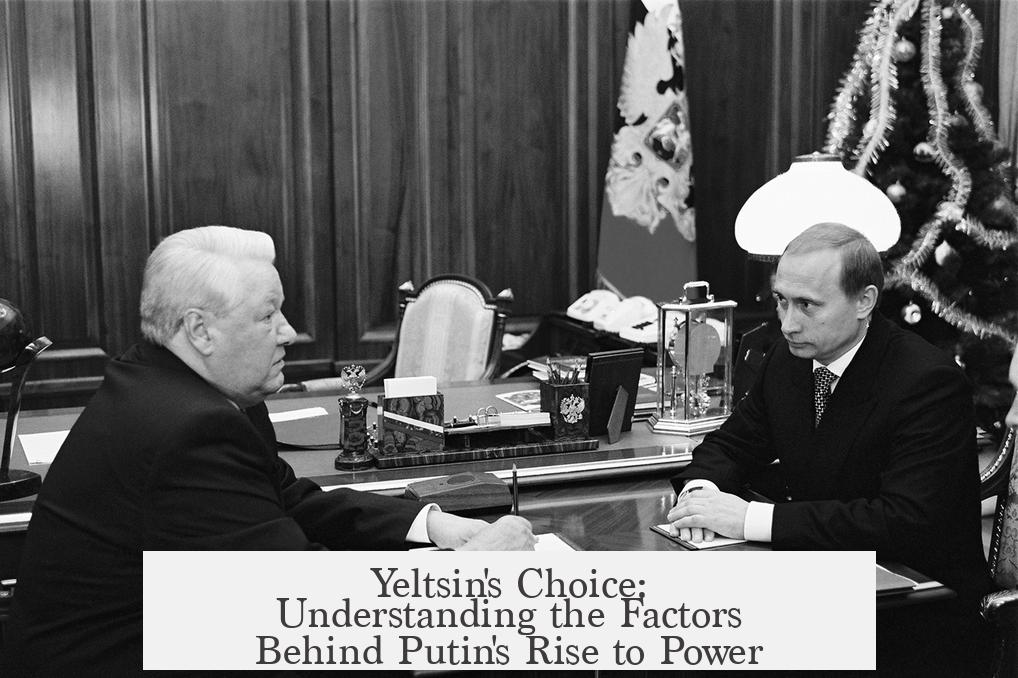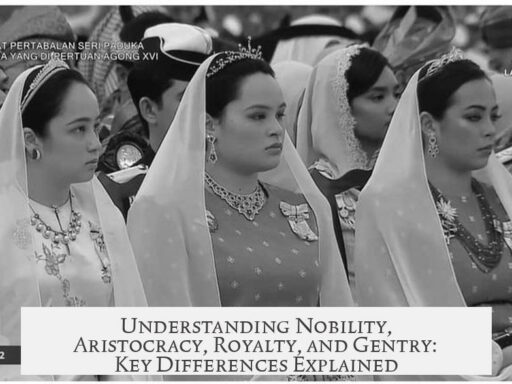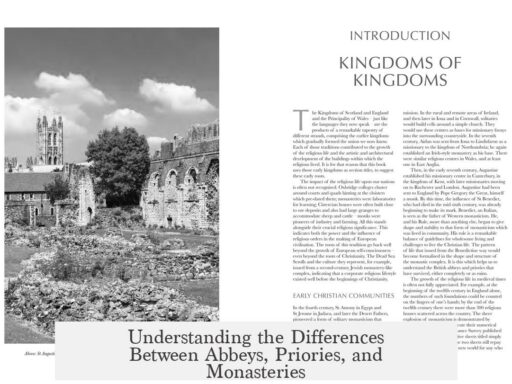Boris Yeltsin chose Vladimir Putin as his successor due to Putin’s unique blend of political neutrality, security background, and strategic alliances that aligned with the interests of Yeltsin’s inner circle, including powerful oligarchs and political players. Yeltsin’s decision was shaped not just by Putin’s image but also by the political circumstances and maneuvering that positioned Putin as the ideal candidate to maintain continuity and control amid a turbulent political landscape.
Putin’s rise was unexpected. Before becoming Prime Minister in 1999, he had no prominent public profile or a clear path to the presidency. His career had been steady but unspectacular. He worked for Anatoly Sobchak, the reformist mayor of St. Petersburg, before moving to Moscow to manage assets within the Presidential administration. Over several years, Putin advanced to Deputy Chief of Presidential Staff and then Director of the Federal Security Service (FSB). This background gave him a reputation for discipline and national security expertise without the baggage of the economic liberal reforms that alienated many in post-Soviet Russia.
Putin was neither from Moscow nor from Yeltsin’s home base in Yekaterinburg. This outsider status helped him appear as a neutral figure, free from local factionalism. He cultivated key political alliances, particularly with influential figures like oligarch Boris Berezovsky and Minister of Emergency Situations Sergei Shoigu. Berezovsky and other “Seven Bankers” oligarchs exerted significant influence over Yeltsin’s decisions during the second term, making their support for Putin crucial.
Political support for Putin grew as a counterbalance to the rising power of Moscow’s Mayor Yuri Luzhkov, who had developed his own strong political base and was a likely challenger for the presidency. Putin’s alliances effectively checked Luzhkov’s ambitions and gained backing from stakeholders who preferred a president they could influence or predict.
Putin’s appointment as Prime Minister on August 16, 1999, was part of a rapid succession of changes at the post, reflecting instability in Yeltsin’s administration. No one expected Putin to last long or to become president. However, a significant event changed the political environment dramatically. The outbreak of the Second Chechen War, triggered by an invasion of Dagestan by Chechen insurgents, began just days earlier on August 7, 1999. Putin’s decisive wartime leadership created a “rally-around-the-flag” effect, which boosted his popularity and transformed him into a dynamic figure in the eyes of the public and political elites.
The 1999 legislative elections further strengthened Putin’s position. The ‘Unity’ movement, backed by Putin and Shoigu, finished second after the Communists but formed a working majority in the Duma. This coalition blocked Luzhkov’s party, Fatherland-All Russia, from gaining power. Unity would later evolve into the dominant United Russia party, providing a solid political base for Putin’s later presidency.
On December 31, 1999, Yeltsin’s unexpected resignation on national television accelerated Putin’s presidential rise. As acting president, Putin gained the advantages of incumbency, including significant media exposure going into the 2000 elections. Reports suggest Yeltsin agreed to step down partly because Putin promised not to prosecute Yeltsin or members of his family, providing legal and political protections that secured Yeltsin’s support behind Putin.
Putin’s personality played a key role in his ascent. He remained strategically opaque, allowing others to believe he was aligned with them or under their influence. Yet, he was capable of making decisive and ruthless moves when necessary. This blend of cautious diplomacy and strategic decisiveness convinced political actors he could be controlled initially, enabling him to consolidate power quietly and effectively.
- Putin’s unassuming but balanced profile made him a safe, manageable choice for Yeltsin and his allies.
- His security and administrative background appealed in a time of instability and war.
- Key oligarchs and political leaders, fearing rivals like Luzhkov, supported Putin as a compromise candidate.
- The outbreak of the Second Chechen War boosted Putin’s visibility and popularity rapidly.
- Yeltsin’s resignation gave Putin a direct path to the presidency with institutional advantages.
- Putin’s tactical discretion and alliance-building enabled him to consolidate power and outmaneuver rivals.
Why Did Yeltsin Choose Putin? Unpacking a Kremlin Chess Move
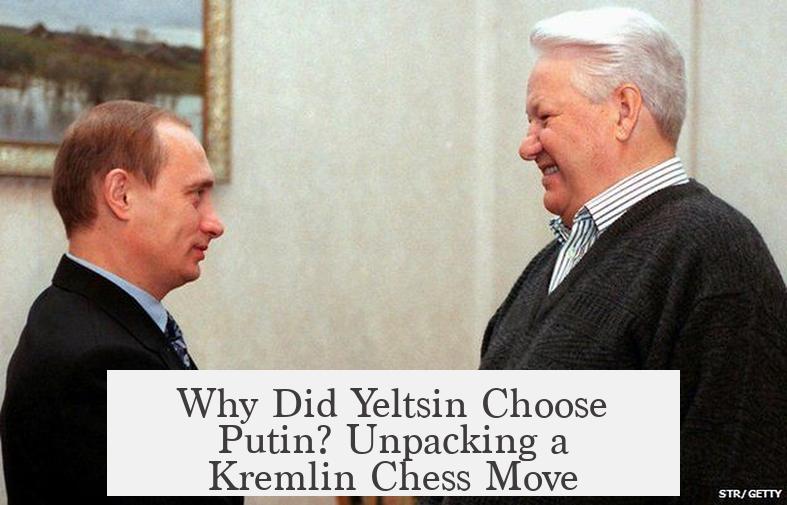
Why did Yeltsin choose Putin? This question seems simple but unpacks a complex strategy, personalities, and political chess in Russia’s volatile 1990s. The answer lies not just in Putin’s background but in Yeltsin’s urgent need for stability, alliance-building, and a fresh face who could hold the reigns without rocking the oligarch boat.
So, who exactly was this Putin that Yeltsin picked — effectively out of the blue — to be his successor? And why him, of all people?
Putin: The Unexpected Candidate with the “Goldilocks” Persona
Unlike the usual high-profile successors in politics, Vladimir Putin emerged with little fanfare. His rise wasn’t flashy or obvious. He came from a quiet background with roots in the security services rather than the bustling world of Moscow politics or economics. This made him just right – a “Goldilocks” choice for Yeltsin: not too young, not too old, energetic but sober, capable but not threatening.
Before Moscow, Putin worked under Anatoly Sobchak, the liberal reformist mayor of St. Petersburg. When Sobchak lost re-election, Putin quietly shifted to Moscow, taking roles that managed presidential assets and slowly climbed to become Deputy Chief of Presidential Staff and then Director of the FSB, the former KGB’s successor.
Interestingly, Putin wasn’t a Moscow insider, nor did he belong to Yeltsin’s “family” circle from Yekaterinburg. This outsider status helped. He had no powerful patron from the old guard, making him a blank slate for alliances.
Political Alliances: The Oligarchs, Shoigu, and the Power Puzzle
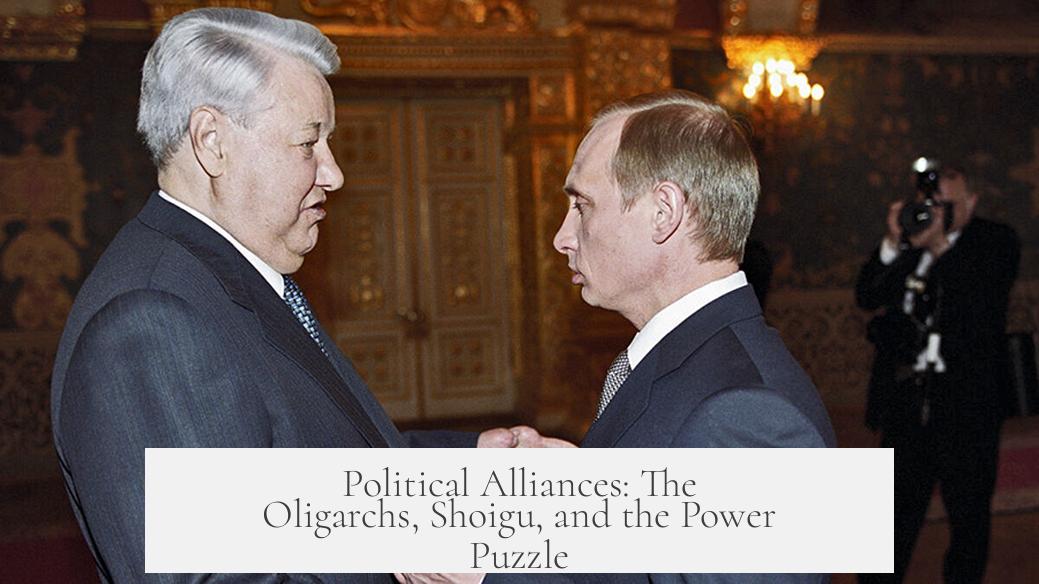
Yeltsin’s second term was heavily influenced by the ‘Seven Bankers’ oligarchs, powerful figures controlling much of Russia’s economy and politics. Among them, Boris Berezovsky saw promise in Putin.
Putin aligned with key players like Sergei Shoigu, a long-time minister with deep roots in Soviet and Russian government, currently serving as the Minister of Defense. This alliance was crucial in consolidating support.
Why did these powerful allies prefer Putin? They eyed Yuri Luzhkov, Moscow’s mayor, as a threat. Luzhkov had a strong, independent power base primed to challenge the Kremlin’s grip. Putin served as a counterbalance.
From Prime Minister to National Hero: The Chechen War Advantage
August 1999 saw Putin named Prime Minister during a period of rapid leadership changes — no one thought he would last. He was the fourth prime minister in 12 months, a revolving door roulette. Yet fate intervened. The second Chechen War broke out when Shamil Basayev’s insurgents invaded Dagestan.
Putin quickly emerged as a wartime leader. This rallied public and political support around him. Suddenly, he transformed from a quiet politician to a decisive figure, riding a surge of patriotic sentiment. The chaos gave him the visibility and credibility Yeltsin’s increasingly fragile regime desperately needed.
Victory in the 1999 Legislative Elections
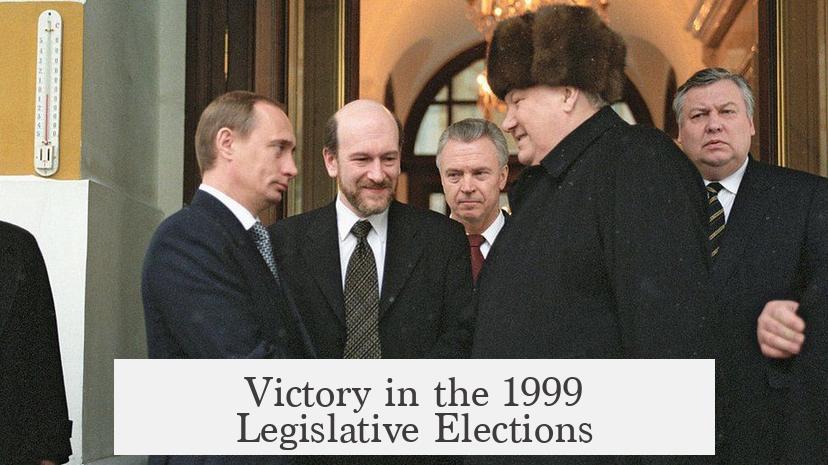
Together with Shoigu, Putin backed the “Unity” Movement, which gained second place after the Communists in the 1999 Duma elections. Unity paired up with the Communists to create a majority that effectively sidelined Luzhkov’s “Fatherland-All Russia” party.
This election victory didn’t just boost Putin’s political legitimacy. It cemented a power structure friendly to his rise and locked out potential challengers sneaking in from Moscow’s elite.
Yeltsin’s Bombshell Resignation Sets the Stage
On December 31, 1999, Yeltsin dropped a bombshell on the nation: he resigned on live television. Why so sudden? Partly to give Putin, now Acting President, a clear, unchallenged path to the 2000 Presidential elections—with all the perks and media coverage the incumbency provides.
There’s also a whispered pact behind the scenes. Yeltsin reportedly secured an agreement that Putin wouldn’t prosecute him or his family, ensuring a peaceful exit without legal battles that could destabilize the post-Soviet order.
The Personality Behind the Power Play
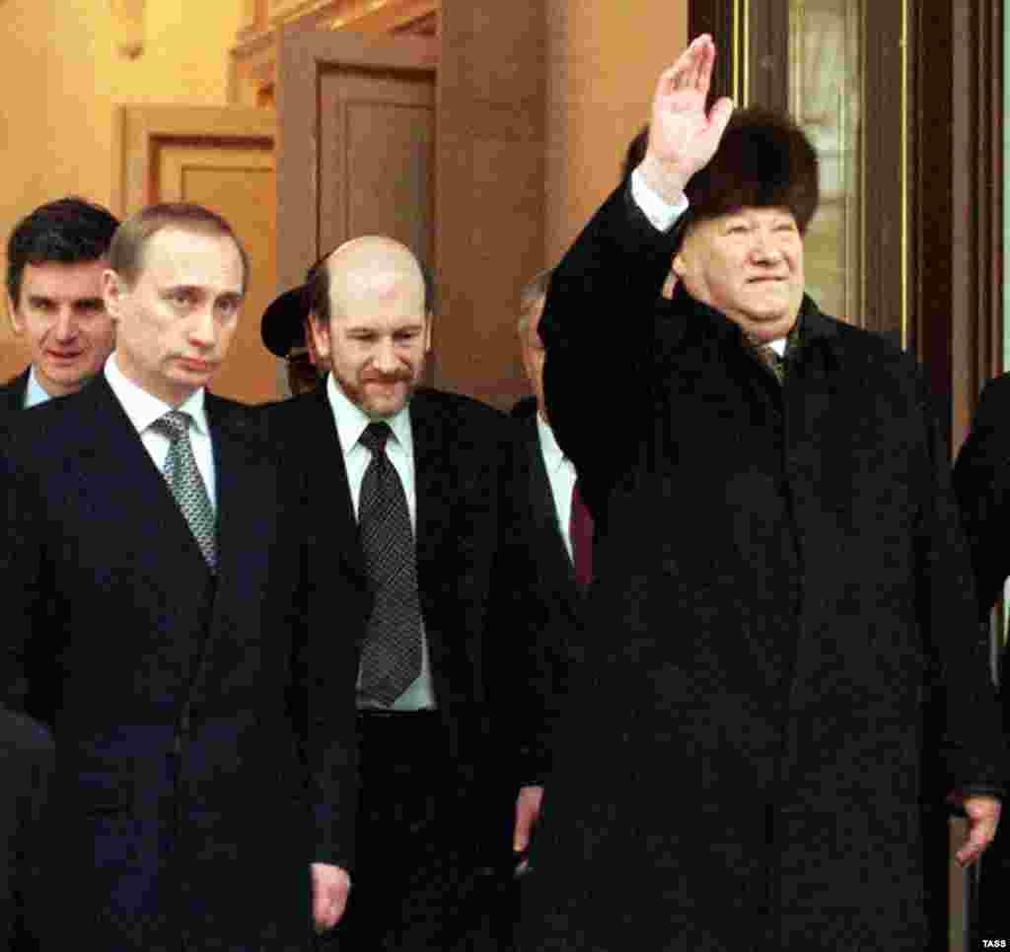
What set Putin apart? His remarkable ability to play his cards close to the chest. Rather than bulldozing ahead, he let powerful players think they controlled or understood him. Then, when the moment came, he acted decisively and ruthlessly.
This trait made him the ideal candidate to hold together a fractured political landscape. It also made Yeltsin confident that Putin would protect his interests, keep reforms on track without unwanted liberal surprises, and maintain the delicate balance of power among oligarchs and politicians.
Why Not Others? Why Putin, and Not More Obvious Successors?
The typical front-runners either carried too much baggage or too much independent ambition. Luzhkov, with his solid Moscow power base, threatened the oligarch status quo. Other candidates from Yeltsin’s inner circle were tied directly to failed policies or scandals.
Putin, remarkably, was a neutral figure with a security background—something reassuring after years of chaotic reforms. Plus, his sobriety and quiet demeanor made him less threatening to established power holders who feared a sudden reversal of fortunes.
Lessons and Reflections
For anyone trying to understand how political succession works in turbulent settings, Putin’s story is a masterclass. Sometimes, the best choice isn’t the star player but the adaptable, reliable understudy who can step up when the spotlight’s on.
Putin’s rise wasn’t an accident. It was a calculated move by Yeltsin and his allies to ensure continuity, control, and survival in an unpredictable era.
So, the next time someone asks, “Why did Yeltsin choose Putin?” you can answer: because he was the just-right figure—a “Goldilocks” leader—who fit the Kremlin’s complex puzzle perfectly at a moment it desperately needed stability. And sometimes, in politics as in life, the quieter player wins the game.
